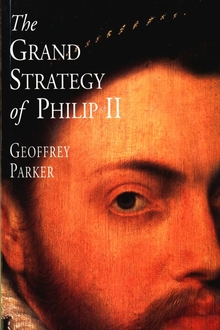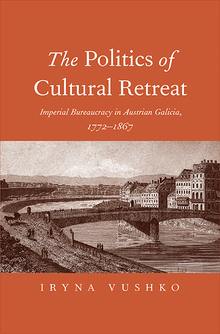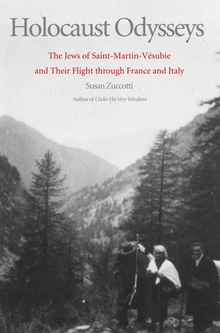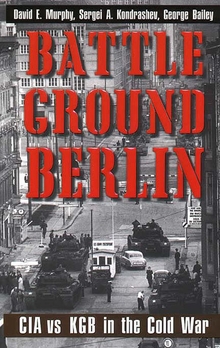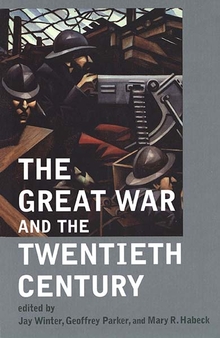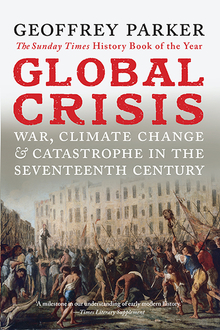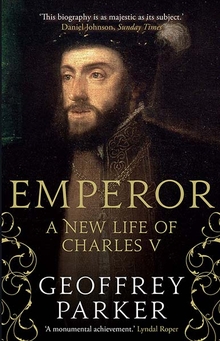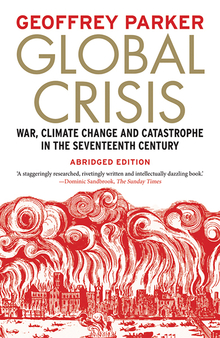The Grand Strategy of Philip II
WARNING
You are viewing an older version of the Yalebooks website. Please visit out new website with more updated information and a better user experience: https://www.yalebooks.com
Geoffrey Parker
Geoffrey Parker begins by defining the characteristics of Spain’s strategic culture: the king’s distinctive system of government, the “information overload” that threatened to engulf it, and the various strategic priorities and assumptions used to overcome the disparity between aims and means. He then explores the surviving documentation (from the Habsburgs, their allies, and their adversaries) on the formation of strategy in three crucial case studies: Philip’s unsuccessful efforts to maintain his authority in the Netherlands, his defective peacetime management of foreign relations with Scotland and England, and his failed Armada campaign against England. Finally Parker examines the small but fatal flaws in the execution of Philip’s Grand Strategy, assesses the response of the king and his ministers to their failures, and questions whether the outcome might have been different with other policy options, another ruler, or a different strategic culture. Pointing to modern parallels between Philip’s problems of governance and those facing Hitler and Churchill, or Kennedy and Johnson, this powerfully argued book provides a fascinating commentary on the nature of empires and the decision-making process as practiced by great powers.
A selection of the History Book Club
"The splendid writing and the rich and vividly interesting documentation, allows any reader to enjoy a work that scholars will find essential."—Edward N. Luttwak, Senior Fellow, Center for Strategic and International Studies, Washington DC.
“This is a deeply-researched, sublime and immensely satisfying analysis of the policies of one of the most important figures in western and world history during the past one-thousand years. . . [Parker] takes the reader to new heights of understanding Spain’s strategical juggling-act during the later sixteenth century.”—Paul Kennedy
"This is a deeply-researched, sublime and immensely satisfying analysis of the policies of one of the most important figures in western and world history during the past one thousand years. For three decades Geoffrey Parker has steadily advanced our knowledge of the life and times of Philip II of Spain, and of the international context in which the Spanish Imperium operated. But this recent work on Philip’s ’Grand Strategy’ takes the reader to new heights of understanding Spain’s incredible strategical juggling-act during the later sixteenth century. Americans who think deeply about the future prospects of our Republic will find much to ponder over in this disturbing, important text."—Paul Kennedy, Dilworth Professor of History and Director of International Security Studies
“Parker has . . . made his case well by marshalling excellent material to show the frustrations of governing a sixteenth century empire. In the process, he has drawn a convincing portrait of a talented but flawed leader.”—Magdalena S. Sanchez, American Historical Review
"In this well-researched and thorough study, Parker examines Philip’s strategic vision, successes, and devastating failures. . . . Students of European history should find it both informative and absorbing."—Booklist
"Parker’s book is accessible to general readers and valuable to scholars."—Choice
"A superb study that is part biography, part military history, and part strategic treatise. The author expertly guides his reader through the strategic complexities that weighed upon Philip II. . . . No less remarkable than Parker’s mastery of voluminous Spanish archives in his use of Philip’s rule to illuminate the broader problems of grand strategy, including such supposedly modern phenomena as information overload. This lucid book deserves a much larger audience than students of the Dutch Revolt and the Armada."—Foreign Affairs
"Not the least of the strengths of Geoffrey Parker’s magisterial book is that he shows how the characteristics of modern multinational and Counter-Reformation imperium fold into each other. . . . [A] powerful insight into Philip’s mentality."—Gordon Marsden, History Today
"The Grand Strategy of Philip II is history on a grand scale. In it, Parker has distilled the fruit of thirty years’ research and writing, which have made his the leading authority on Spain’s relations with northern Europe in the early modern era. . . . A highly sophisticated and stimulating work."—Bruce Taylor, History: Reviews of New Books
“For students of international history, Geoffrey Parker’s latest book is both a treat and a model of how international history might be done. . . . This is a pathbreaking and essential study.”—Peter Pierson, International History Review
“An exceptionally thoughtful, gracefully written book. . . . Its conceptual and analytical framework using modern-day examples of strategy planning as analogies, give this book a freshness and vitality. . . . Geoffrey Parker demonstrates forcefully that there is much more to be learned about Philip II.”—John Jay TePaske, Journal of Military History
"An attempt for the first time . . . to examine in detail the precise way in which Philip II ruled the first global empire in history and to discover the strategic priorities that underlay his international policies, the practices and prejudices that influenced his decision-making and the external factors that affected the achievement of his goals. . . . Parker provided us with the fullest and most densely illustrated account of the working practices of the king that we have. His chapters on communications, the courier service and the processes of information gathering, the uncovering of Philip II’s secret intentions by his enemies and, in particular, the reexamination of the thorny question of whether the duke of Parma’s troops were ready to join up with the Armada in August 1588 are masterly exercises in historical reconstruction and in the fluent exposition and control of material. . . . Each individual part of the book is in itself superbly crafted, challenging and informative."—I.A.A Thompson, Los Angeles Times Book Review
"A richly detailed political and diplomatic portrait of the reign."—Carla Rahn Phillips, Naval History
“This is a history that moves backward from the strategic concerns of today; that gives it an edge and an immediacy few other books on Philip have achieved. . . . Parker’s highly detailed but also immensely readable book has come far closer to that than any previous account of the most enigmatic of Spanish kings.”—Anthony Pagden, New York Times Book Review
"This book is a brilliant and original undertaking, based on staggering research, and it only reconfirms Parkers’ place in the top echelon of military historians."—Fritz Heinzen, Paper Wars
"Parker offers awesome detail, compelling narrative, and not infrequent humor, you cannot ask for much more."—Ruth MacKay, Sixteenth Century Journal
"[A] splendid study . . . Parker offers an enthralling analysis."—Henry Kamen, Times Literary Supplement
"Basing his work on the mass of unpublished letters, declarations and notes that the 'prudent king’ wrote and received—especially the papers of his private secretary, Mateo Vázquez—Mr. Parker leads us with consummate skill through the thorny problems of Philip’s reign. Mr. Parker’s translations of King Philip’s letters are excellent, helping us to understand the monarch’s state of mind."—Hugh Thomas, Wall Street Journal
“Basing his work on the mass of unpublished letters, declarations and notes that the ‘prudent king’ wrote and received . . . Mr. Parker leads us with consummate skill through the thorny problems of Philip’s reign. . . . Mr. Parker’s translations of King Philip’s letters are excellent, helping us to understand the monarch’s state of mind.”—Hugh Thomas, Wall Street Journal
"His story can, and should, be viewed as a case study for both our war colleges and schools of government, an example of strategic reach exceeding strategic grasp."—Gary Anderson, Washington Times
“Mr. Parker is a prolific and thorough veteran historian as well as an engaging writer. . . . He has created a work that teaches even as it entertains.”—Gary Anderson, Washington Times
“The Grand Strategy of Philip II, in short, is a grand triumph.”—Sara T. Nalle, Journal of Modern History
“This wise, absorbing and sumptuously produced book helps us to view the busy, anxious king with more understanding of the frustrations and stresses which the powerful face in every age.”—Diarmaid MacCulloch, Church Times
Publication Date: March 11, 2000
24 b/w illus.

